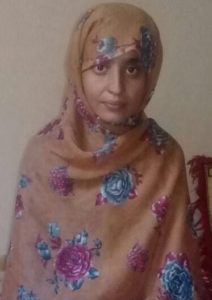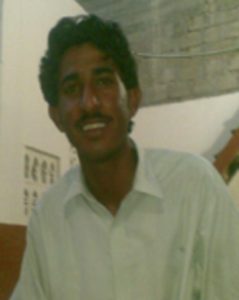Balochistan: wife died after long struggles to get news of husband
Ms. Safar’s Family members ran desperately from pillar to post to get any information about him. They grilled the other brothers who had been abducted along with him and were later released.
They went to the police station to lodge an FIR.
They held special prayer ceremonies. They paid a handsome sum to the local fortune reader to predict Safar’s fate though they did not believe that she could tell the future of a person from reading the unfolding mazari palm leaves.
The murky world of Pakistani enforced disappearances sometimes enables the victim’s family to receive information when another victim is released from the dungeons and brings information about inmates. There are instances when family members are exploited for cash by a sinister network of local politicians, criminals and army personnel and then handed over false information. But, basically, disappearance means that you do not know anything about your loved ones.
Enforced disappearance is followed by a refusal to disclose the fate and whereabouts of the victim. In some cases, the very existence of the person is denied. So no one knows Safar Baloch’s location or why he was abducted. The only thing that Ganjal (wife of Safar) knew was that he was abducted by the security forces from their house in the Hub city in the Pakistani province of Balochistan.
Ganjal’s world revolved around her husband. She had been married only for six months when he was abducted in front of her on 24 October 2013. She tried to resist the army personnel, but they were strong enough to shove her away with the butt of their gun.
Ganjal was born in Labaach, Awaran. She did not attend school as there were no nearby schools to attend in her village. She was a girl which meant she could not travel long distances. The only time she travelled long distances along with other female family members was to fetch water. The male-dominated Baloch society has heavy boundaries to equality, safety and security of women and girls. These boundaries have been tightened further by the deployment of large number of army personnel accompanied by freshly radicalized Islamists.
Before being abducted, their family had been forced to leave Awaran by an earthquake and routine military operations. The societal and cultural isolation that followed after the abduction gave rise to a never ending cycle of anxiety. She gradually drew into isolation and kept on thinking until she had anxiety attacks with her arms and legs becoming as stiff as wood, and ceased breathing. With the abduction of Shabir Baloch, to whom she was an aunt, she withdrew completely in the darkest corner of the house often murmuring the question:
Where Safar is?
Yet she tried to be brave. Her brother, Zafar Ali, who is a refuge in Germany, recalls: “Whenever I talked to her she put on a brave face. She said she could cope with Safar being in jail but she only wanted to know where he was. Is he alive?”
Zafar Ali says that she had called him a few hours before her death. Since he was busy in a program with the Amnesty International, he could not pick her call.
The doctors knew her mental condition but could not find a cure. She suffered from a illness nearly all relatives of enforced disappeared persons suffer. When the medicaments failed to cure her, they tried counselling. But counselling helps only temporarily. So Ganjal had her last anxiety attack on 2 June 2018 without knowing where Safar is.



